
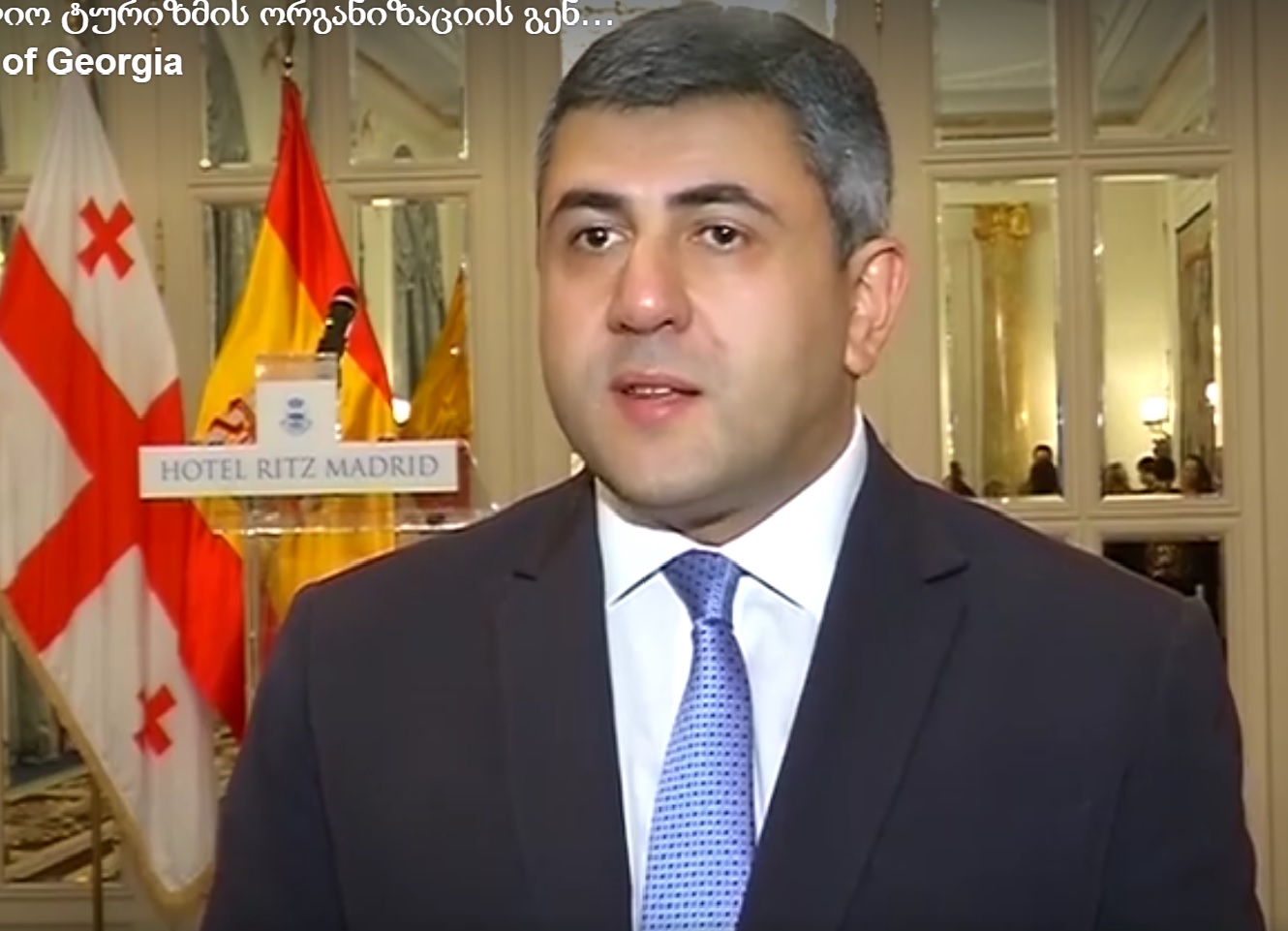
Georgian candidate wants to become UNWTO Secretary General and lays out his plan
The competition to become the new Secretary General of UNWTO is on. In the ring is the Hon. Walter Mzembi from Zimbabwe and the Hon. Zurab Pololikashvili from Georgia.
The outspoken Zimbabwe Minister of Tourism and Hospitality Walter Mzembi has been on a global campaign traveling the world back and forth. He has been doing this for many months seeking support for his candidacy. He got the endorsement of the African Union and was promised support from countries in many different regions of the globe.
Mzembi has been promoting a fresh new and global vision for UNWTO talking to heads of state, to ambassadors and ministers wherever he finds an opportunity. The Georgian candidate shows a more local vision putting economic opportunities for his country in the foreground.
The Georgian candidate shows a more local vision putting economic opportunities for his country in the foreground. He has not responded to interview requests by eTN. Mzembi leaves no opportunity out to talk to media everywhere and has his PR team working hard on his case.
Mzembi leaves no opportunity out to talk to media and has his PR team working hard to get press coverage as a global leader.
The new and latest candidate to compete for the highest global post in travel and tourism is the Georgian Ambassador to Madrid, Mr. Zurab Pololikashvili. An event was held in Madrid this week. The event was attended by Georgian Foreign Minister Mikheil Janelidze and the current Secretary General of the UNWTO Taleb Rifai.
It was the first public lobbying by the Georgian candidate, and he put up a more national and regional approach compared to Mzembi who has been lobbying tireless for many months on a truly global platform to become Secretary Genera for UNWTO.
At the Georgian event in Madrid, the current UNWTO Secretary-General Taleb Rifai addresses the audience. The audience included high-level members of the diplomatic corps representing their countries in the Spanish capital.
UNWTO Secretary-General Taleb Rifai said:
“I think it’s very important, because this is the first of the events to open the opportunity for people to present themselves for candidature, and I think the presence of the Foreign Minister from Georgia who is here with us today and also the number of people who are here today, the variety of ambassadors that are represented in this room, it is very significant, and it is a very important sign.
Today’s event also is excellent in the sense that it gave an opportunity for Georgia’s Ambassador Mr. Zurab Pololikashvili to present some of his thoughts and some of his ideas.
I have been Secretary-General of this organization for the last 7 or 8 years, and it’s coming to an end. My only hope is that this position would be continued by a good candidate and a candidate that can take this organization to an even higher level than it is now. That’s why I’m very particularly happy to be here tonight witnessing the introduction of a new candidate.”
Mikhail Janelidze – The Minister of foreign Affairs of Georgia said:
Georgia is given the chance to bit for this high position in the UN and in UNWTO, a specialized agency.
We see the tourism sector as a very important industry and an opportunity for Georgia. Our country has been actively involved in UNWTO organized projects in Georgia.
For Georgia to be able to nominate a candidate to lead the UNWTO shows our commitment and priority we put on tourism in our country.
With UNWTO based in Madrid, Madrid is considered the capital of tourism. Therefore today we invited high – ranking guests representing UNWTO member countries in Spain to our event here.
Exactly this is the kind of vision Zurab Pololikashvili has as a candidate for this important position.”
Giorgi Chogovadze – the Head of Georgian National Tourism Administration added: “Let me remind you that tourism is not only important in Georgia but is important also all over the world is an important economic sector. If our Georgian candidate will win, he will not only support the Georgian tourism sector but all other sectors of our country, and the world.
The candidate Hon. Zurab Pololikashvili – Ambassador of Georgia to Spain finally added in promoting his candidacy: “Today was a very important day for me. Today is the official launch event for my candidacy to become the next Secretary General of UNWO. I invited the diplomatic corp in the Spanish capital and key members of the diplomatic circle tonight. I am very grateful to our Foreign minister. I feel his huge support every day.
I also feel the support of our entire government. We had a similar event several weeks ago in Tbilisi, Georgia. It was attended by our Prime Minister, and we showed the audience what we are planning and what our vision is for the future. I think this is a step forward. My victory would not only be a big achievement for me but also for the entire region. It would be a victory for our neighbors, as well as for Eastern Europe. To think even further we believe that I’ll be a good European candidate. For me, it is a great honor, an honor for our region and the entire European continent.”
The competition could get interesting. While Mzembi leaves out no opportunity to lay out his vision to the global media, Pololikashvili has been more reserved to talk to the press.
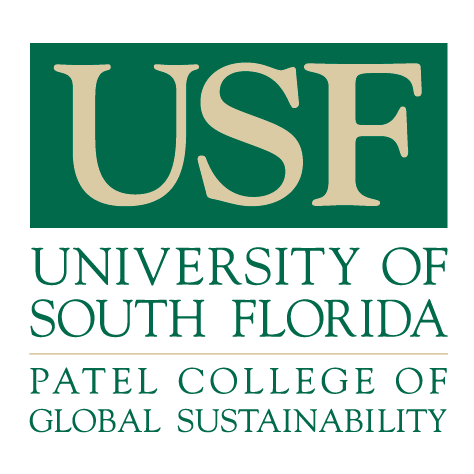
The University of South Florida’s Patel College of Global Sustainability – the newest member of the UNWTO International Network of Sustainable Tourism Observatories (INSTO)
The Blue Community Observatory hosted by the USF Patel College of Global Sustainability (PCGs) of the University of South Florida, USA, has become the latest member of the UNWTO International Network of Sustainable Tourism Observatories. This Observatory monitors the impact of tourism in parts of the Pinella and Manatee Counties, two popular tourist destinations in Florida.
The observatory is the first sustainable tourism observatory in the United States and will be working with a total of 16 communities within the two counties, aiming at providing policy makers and tourism managers with the regular gathering, analysis and communication of information related to tourism’s impacts on environmental, social and economic aspects.
The monitoring area is one of the most popular tourist destination in Florida due to its unique coastal environment and marine habitat. It welcomes over 13 million visitors every year who contribute enormously to the local economy where tourism generates directly 116,300 jobs (Pinellas and Manatee). Continuous monitoring of the tourism impact and performance, across the three dimensions of sustainable development, is therefore a crucial element for sustainable tourism development and evidence-based decisions.
The work of the Blue Community Observatory is focused on areas such as local satisfaction with tourism in the destination; seasonality patterns; energy, waste and water control; food production, clean marinas, education, and policies related to the science of planetary boundaries, among others.
“We highly welcome the Blue Community Observatory at the University of South Florida as a new member of the Network as it will help us to achieve the mission of this initiative in a unique momentum in which we prepare for the International Year of Sustainable Tourism for Development 2017” said UNWTO Secretary-General, Taleb Rifai.
“During 2017, the work of the Observatories will be prominently featured globally as crucial elements to monitor tourism development and ensure the sustainability of our sector”, he added.
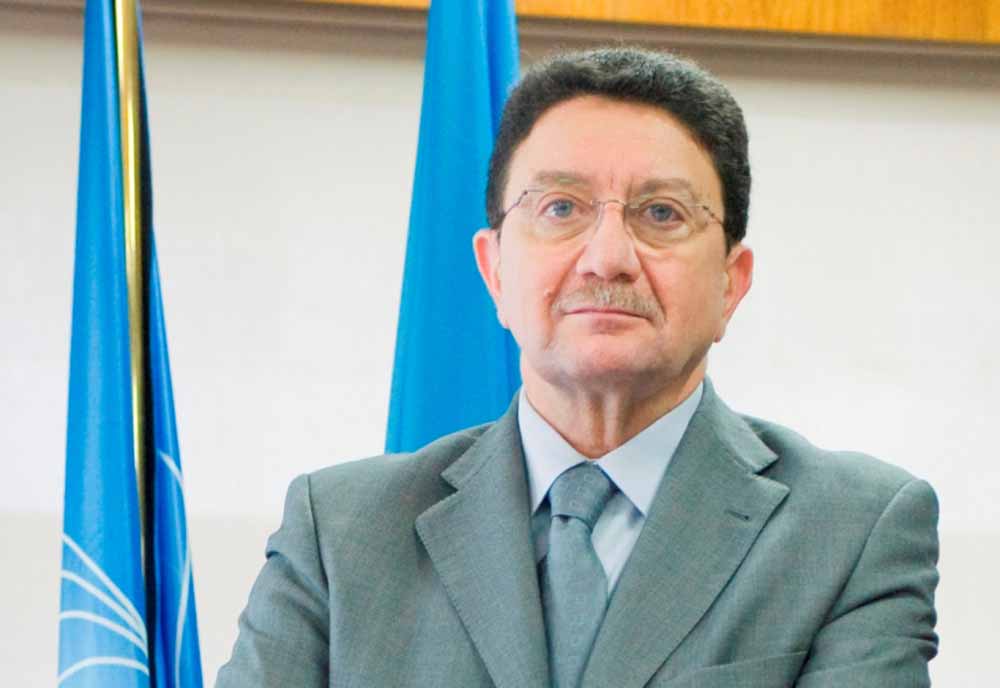
Taleb Rifai emphasizes role of cities and regions in development of sustainable tourism in Europe
In an official visit to Brussels, Belgium on 7 December, Secretary-General of the World Tourism Organization (UNWTO) Taleb Rifai emphasized the role that municipalities and regions play in the development of sustainable and competitive tourism in Europe.
Rifai was a special guest at the 120th Plenary Session of the Committee of the Regions of the European Union, where he addressed its 350 members on the occasion of the debate and adoption of the opinion on ‘Tourism as a driving force for regional cooperation across the EU’. Meeting the rapporteur of the opinion, Hans-Peter Wagner, Mayor of Breitenwang (Austria), Rifai stressed the relevance of tourism at regional level in terms of socio-economic and cultural development, and the need to enhance regional cooperation.
“European cities, regions and municipalities are key pillars to foster sustainable and competitive tourism. This is the moment to lay the foundations for a new paradigm for the tourism sector; to embrace a sustainable, inclusive and responsible tourism sector that makes clear business sense, drives local development and builds a sense of common future in Europe,” said Rifai in his intervention.
As part of his visit, the Secretary-General met a number of Members of the European Parliament. The bilateral discussions focused on how to further strengthen the ongoing cooperation between the two entities in light of the forthcoming International Year of Sustainable Tourism for Development in 2017 and European Year of Cultural Heritage in 2018.
In a meeting between Rifai and Claudia Tapardel, Co-Chair of the Intergroup on European Tourism Development, it was agreed that two major UNWTO/European Parliament events will be held in 2017, one of which in Romania on the digitalisation of the tourism sector and seasonality.
“This will be an ideal opportunity to discuss the concrete challenges of Romanian tourism, starting with the economic impact of seasonality and ending with professional training of employees in the field,” said Tapardel.
“Romania has been advancing strongly in tourism development and I would encourage the incoming government to consider the creation of a dedicated tourism ministry to make the best use of Romania’s opportunities in the sector. Romania would greatly benefit from a coordinated and centralized approach to tourism that further stresses the links between the sector and SMEs,” Rifai added.
The European Capital of Tourism
The UNWTO Secretary-General also praised the ‘European Capital of Tourism’ initiative led by Istvan Ujhelyi, Vice-Chair of the Committee on Transport and Tourism and responsible for the Tourism Task Force Group of the European Parliament.
“UNWTO is very happy to support such an innovative initiative as it can help promote the richness of the tourism offer of European regions and cities while increasing citizens’ pride in sharing local tourism-related values,” said Rifai in a debate conducted with stakeholders of the European Tourism Manifesto and private sector representatives.
UNWTO Secretary-General also met Committee member Claudia Monteiro de Aguilar, who expressed her appreciation for the continuous support of UNWTO to the tourism sector in Portugal.
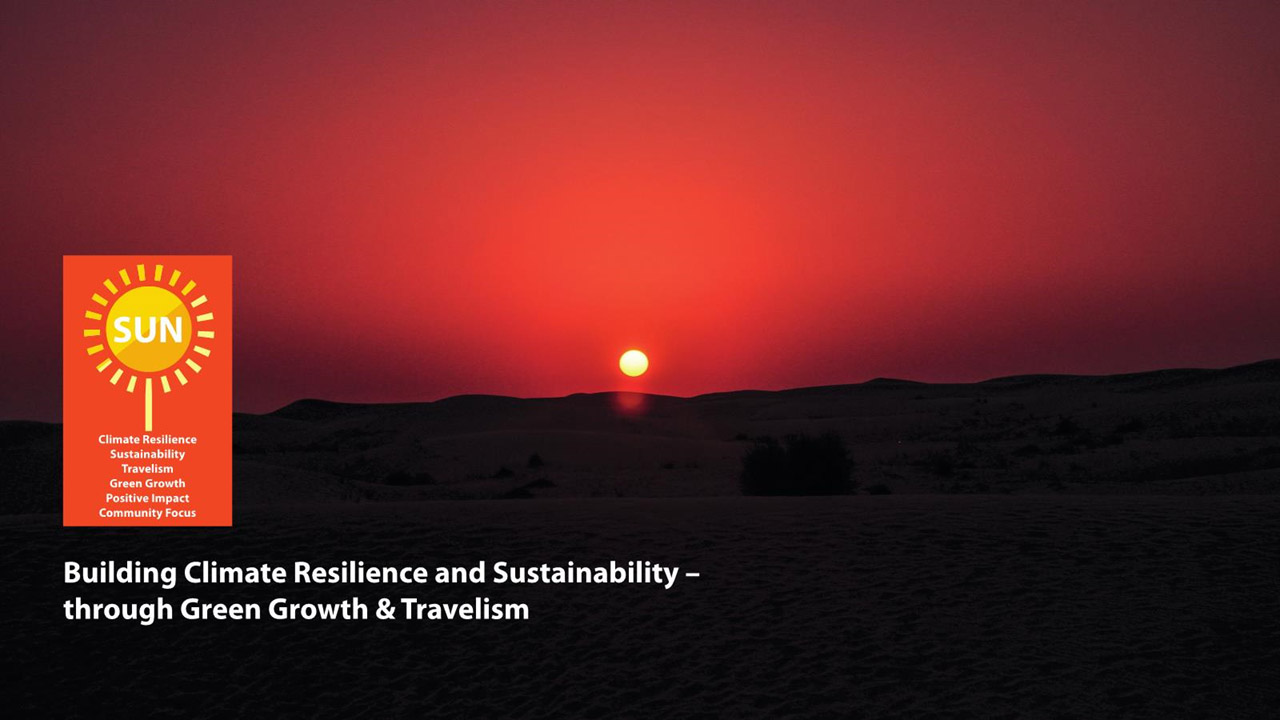
A Christmas Present From SUN
The 2015 Paris Accords set in train, a 3-decade, low carbon transformation, based on widespread recognition that “Climate Change is existential”. This is the reason for the creation of SUN – the Strong Universal Network – as an essential movement of increasingly engaged industry, government and civil society partners – focussed on climate resilience as a priority. We are creating a platform for tracking, focussing and sharing climate response innovation as it intersects with travel.
To introduce SUN to the Travel & Tourism sector, we are proud to present “Green Santa” – a Climate Change primer in the form of a comic book. Co-authored by Felix Dodds, one of the founders of SUN and issued under the auspices of the UN Secretary General this 24-page fun document is designed to appeal to adults as well as kids. It explains the reasons why Climate Change is existential and the steps we need to take now in response.
Copies can be downloaded from www.thesunprogram.com where you can also find more background on SUN, our goals and how to engage.

Paris: Operators are working for recovery
London, 7 December 2016
Paris is the primary attraction in the principal destination in Europe. The publicity associated with the events of 2015 and 2016 have led to a softening of its appeal in such long haul origin markets as the US, Japan and China. Many visitors who would normally have come have chosen not to do so: amidst a decline of 8% of international arrivals in Paris, the Chinese and Japanese have seen shortfalls as high as 25%[1].
This has a significance beyond France. “Our members sell Europe as a destination all over the world,” said Mario Bodini, Chairman of ETOA. “Paris is a central element of any European tourist offer: if there is a “best seller” on the long-haul markets, it is a joint package of London and Paris. That Paris has suffered a decline in bookings in 2016 has impacted demand throughout Europe.”
According to Paul Wagner, Director of Travel Plaza (JTB), “Paris is the main gateway to Europe for a large number of long-haul markets. It is through France that our clients visit the UK, Benelux, Germany, Italy and Spain. The magic of Paris itself is the major asset of many European programs and earlier these markets return to Paris in their usual number, the faster the whole of Western Europe will rebound from the lull of 2016. Paris is the principal jewel for the European sector of our group.”
The industry is making real efforts to turn this situation around. “France has always been a top destination for Kuoni” said Dalila Belouchat, the Senior Contracts Manager “so we have redoubled our efforts offering exclusive new products to our sales offices around the world. All the contract managers in Asia have met directly with the Asian agents to boost this business. I spent a week in Japan to make a presentation about France to our vendors and to meet our Japanese tour operators. I am sure the business will return to France in 2017: we already have series bookings. This is a strong and positive signal.”
There are positive signs that similar initiatives are working. Helping this has been a real willingness in France to work with the trade. Andrew Guthrie, Director of Purchasing and Operations at JacTravel, notes that “despite the latest setbacks, the level of group requests and confirmed groups for France is up by 20% in 2017 on 2016. This is largely due to the excellent cooperation we receive from our main French suppliers today.”
Tom Jenkins, CEO of ETOA, added “We have been here before. Much of the damage caused by terrorists lies in the response to them, and how we handle that reaction. Confidence always returns, particularly for a destination as appealing as Paris. It was to assert this and to recognise the connectivity of European tourism, that we were delighted to welcome the Moulin Rouge to our annual dinner in London this year. “
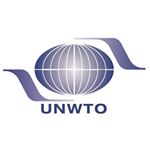
UNWTO underlines the potential of tourism to preserve biodiversity – COP-13
With the objective of advancing the contribution of the tourism sector to biodiversity preservation the World Tourism Organization (UNWTO) participated in the UN Biodiversity Conference COP13, in Cancun, Mexico (2-17 December). The Conferences is focused on mainstreaming biodiversity across relevant sectors, especially agriculture, fisheries, forestry and tourism.
Just a few weeks ahead of launching the International Year of Sustainable Tourism for Development, which will be celebrated throughout 2017, UNWTO underlined in Cancun the need for national policies and frameworks for sustainable tourism that protect biodiversity and foster multi-stakeholder partnerships.
“Tourism and biodiversity are natural allies and UNWTO is fully committed to its joint work with the Convention of Biological Diversity. Tourism can highly contribute to the protection of biodiversity, by raising awareness, by engaging the tourism community and by proposing sustainable alternatives for local communities,” said UNWTO Secretary-General Taleb Rifai at the opening of the conference.
Erick Solheim, Executive Director of the United Nations Environment Programme (UNEP), said “Tourism is one of the biggest job creators on planet Earth. So if we protect biodiversity, we are creating jobs.”
“I want to thank the World Tourism Organization for the work they have done in the area of biodiversity,” said Braulio Ferreira, Executive Secretary of the Convention on Biological Diversity, at the event.
The participation of UNWTO in COP-13 included the side-event ‘Tourism, Business & the Environment’, which addressed strategies to promote tourism experiences that can be both sustainable and profitable, creating opportunities for local communities.
Additional information:
The Conference of the Parties is the governing body of the Convention for Biological Diversity, and advances implementation of the Convention through the decisions it takes at its periodic meetings.
Convention on Biological Diversity: https://www.cbd.int/cop/
UN Biodiversity Conference COP13: https://www.cbd.int/conferences/2016 / http://cop13.mx/
International Year of Sustainable Tourism for Development 2017: http://www2.unwto.org/tourism4development2017

International Year for Sustainable Tourism for Development 2017 garners support from the sector
Madrid, Spain, 5 December 2016, only few weeks ahead of the official launch of the International Year of Sustainable Tourism for Development 2017, set to take place on the 18 of January 2017 in Madrid, Spain, representatives from various tourism industries and beyond have joined UNWTO to support the celebrations of this important event.
The United Nations 70th General Assembly has designated 2017 as the International Year of Sustainable Tourism for Development. In the context of the universal 2030 Agenda for Sustainable Development and the Sustainable Development Goals (SDGs), the International Year aims to support a change in policies, business practices and consumer behavior towards a more sustainable tourism sector that contributes to the SDGs.
The Ministry of Tourism of Mexico, the German National Tourism Board, All Nippon Airways, the Global Tourism Economy Research Centre, Macao, China, the Balearic Islands Tourism Agency, Minube, Amadeus, the European Geoparks Network, The Travel Corporation and DDB are among the first sponsors to join UNWTO to support the programme of activities of the Year. The City of Zurich, the University of Crete, CABI and Green Key have also joined as “Friends” of the Year.
“The International Year of Sustainable Tourism for Development, to be launched in January in Madrid, is a unique opportunity to raise awareness on the contribution of sustainable tourism to development among public and private sector decision-makers and the general public, while mobilizing all stakeholders to work together in making tourism a catalyst for positive change,” said UNWTO Secretary-General Taleb Rifai.
The year will promote tourism’s role in the following five key areas:
(1) Inclusive and sustainable economic growth
(2) Social inclusiveness, employment and poverty reduction
(3) Resource efficiency, environmental protection and climate change
(4) Cultural values, diversity and heritage
(5) Mutual understanding, peace and security.
A full programme of activities will be unveiled on 18 January on the occasion of the Opening of the International Year.
More information:
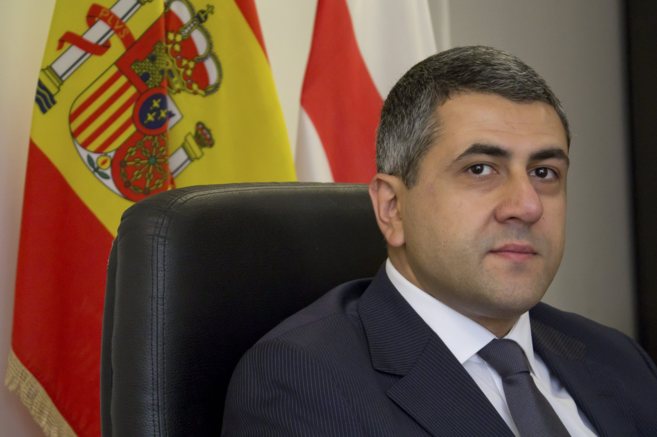
Georgia’s Ambassador: The new future leader of UNWTO?
Competing for this move with the outspoken Hon Walter Mzembi, Minister of Tourism and Hospitality Zimbabwe, the country of Georgia on November 15 has named Zurab Pololikashvili, ambassador to Spain and permanent representative to the UN World Tourism Organization (UNWTO), for the position of the organization’s secretary general.
Mr. Pololikashvili speaks English, Spanish, French, Russian, and Japanese
In 1998 he graduated from the Technical University of Georgia with an degree in International banking.
In 1993 he studies French at the International Language School in Paris.
As of April 15, 2012 Mr. Pololikashvil is Ambassador Extraordinary and Plenipotentiary of Georgia in the Kingdom of Spain
Prior:
March 2011-March 2012 General Manager of FC Dinamo de Tbilisi
July 2010 – February 2011 Vice President of Grupo TBC
August 2009 – June 2010 Minister of Economic Development of Georgia
June 2006 – August 2009 Ambassador Extraordinary and Plenipotentiary of Georgia in the Kingdom of Spain
July 2005 – January 2006 Deputy Foreign Minister of Georgia
February 2005 – July 2005 Head of Central branch of TBC Bank
February 2001 – February 2005 Director of the Mtatsminda branch of TBC Bank
March 1999 – February 2001 Assistant Credit Manager TBC Bank
March 1998 March 1998 Accounting Correspondence Manager, TBC Bank
November 1997 – December 1998 manager of international operations, TBC Bank
Courses completed
· 2008-2009 – Business Executive Course, Instituto de Empresa de Madrid
· January 2004 – JICA International Economics Program (Tokyo, Japan)
· October 2001 – KPMG Barents Group. Seminar of Management of branches (Varna, Bulgaria)
· December 200 – Banking Financial Academy. The New Accounting Standards (Tbilisi, Georgia)
· November 2000 – Financial Academy Banking. Marketing Banking (Tbilisi, Georgia)
· March 1999 – Credit Commercial de France (CCF, Paris) Internship in Commercial Management
· April 1999 – Program for small and medium-sized enterprises (Yerevan, Armenia)
· January 1998 – Banking Financial Academy, Business English Course
· April 1998 – Credit Commercial de France (CCF, Paris) Documentary Operations Seminar (Tbilisi, Georgia)
· March 1998 – USAID in Cooperation with the Barents Group LLC. Seminar on Documentary Operations (Tbilisi, Georgia)
· April 1997 – USAID in Cooperation with KPMG Peat Marwick. Credit Analysis Seminar (Tbilisi,
Georgian Prime Minister Giorgi Kvirikashvili said on November 14 when nominating Pololikashvili that he has played a great role in promoting the country’s tourism potential and attracting foreign investments to this sector. He also noted that Pololikashvili’s background fully meets the eligibility criteria for assuming the UNWTO Secretary General’s duties.
Georgia, a country at the intersection of Europe and Asia, is a former Soviet republic that’s home to Caucasus Mountain villages and Black Sea beaches. It’s famous for Vardzia, a sprawling cave monastery dating to the 12th century, and the ancient wine-growing region Kakheti. The capital, Tbilisi, is known for the diverse architecture and mazelike, cobblestone streets of its old town.
Georgia is affiliated with the European Union and has shown its desire to become a tourism destination. New hotel developments in Tbilisi are witness to this move, but so far the country has not made a major impact in global travel and tourism. The tourism industry is in a developing mode at this time.
In the meantime the Hon. Walter Mzembi from Zimbabwe had been traveling the globe, attended many important UNWTO meetings, trade shows, and events, bringing creative ideas of a fresh global approach to the world in how to lead UNWTO in a different world. His experience as one of the longest serving tourism ministers in the world is hard to find and may be a big challenge for the Georgian candidate.
The term of office of incumbent Secretary General of UNWTO, Taleb Rifai, a Jordanian national, is coming to an end next year. The new Secretary General for 2018-2021 will be selected in May 2017 by the organization’s executive board comprised of 33 nations, according to the Georgian government’s office.

UNWTO announces the finalists of the UNWTO Awards for Excellence and Innovation in Tourism
UNWTO has announced the finalists of the 13th edition of the UNWTO Awards for Excellence and Innovation in Tourism. The 12 finalists were selected among 139 applicants from 55 countries. The winners will be announced on 18 January 2017 at the UNWTO Awards Ceremony, organized for the fourth consecutive year in collaboration with Madrid International Tourism Fair (FITUR / IFEMA).
The Awards recognize excellence and innovation in tourism in four categories: 1) Public Policy and Governance, 2) Enterprises, 3) Non-Governmental Organizations and 4) Research and Technology.
“The UNWTO Awards reflect the efforts done worldwide by the tourism community to foster innovation and the need of the sector to advance towards a more sustainable and responsible future” said UNWTO Secretary-General Taleb Rifai. “In the last decade the Awards have shown the sector’s high commitment to this goal, which this year has a special meaning as we celebrate the International Year of Sustainable Tourism for Development 2017,” he added.
Initiatives from Belgium, Costa Rica, the Dominican Republic, Egypt, India, Italy, Jordan, Mexico, Netherlands, Portugal and Spain compile the list of final candidatures from which the Awardees will be announced on 18 January 2017.
Finalists of the 13th edition of the UNWTO Awards for Excellence and Innovation in Tourism
1. UNWTO Award for Innovation in Public Policy and Governance
– Innovative use of e-tourism/Egypt’s strategy 2020, Advisory Council of the Ministry of Tourism, Egypt
– Invat.Tur, Valencia Region Tourism Board, Spain
– Social progress index in tourism destinations in Costa Rica, Costa Rica Tourism Board, Costa Rica
– Strategies for development of sustainable tourism in Guanajuato, Guanajuato State Ministry of Tourism, Mexico
2. UNWTO Award for Innovation in Enterprises
– Adding color to lives, Carlson Rezidor Hotel Group, Belgium
– Ecobnb: The community of sustainable tourism, Ecobnb, Italy
3. UNWTO Award for Innovation in Non-Governmental Organizations
– Culture heritage: tools for sustainability of a World Heritage Site, Petra National Trust, Jordan
– Inclusion of micro- and small enterprises in the sustainable tourism supply chain, Fundación Tropicalia, Dominican Republic
– Govardhan Eco Village, India
4. UNWTO Award for Innovation in Research and Technology
– Carmacal carbon calculator for travel packages, Dutch Association of Travel Agents and Tour Operators (ANVR), Netherlands
– Encyclopedia of tourism, Ulysses Foundation, Spain
– IP Tourism 4.0, Turismo de Portugal, Portugal
The 12 finalists will share their expertise and experiences at the UNWTO Awards Forum on 16 January 2017, in Madrid.
Two days later, on 18 January 2017, the winners of each category will be announced at the UNWTO Awards Ceremony and Gala dinner.
Additional information:
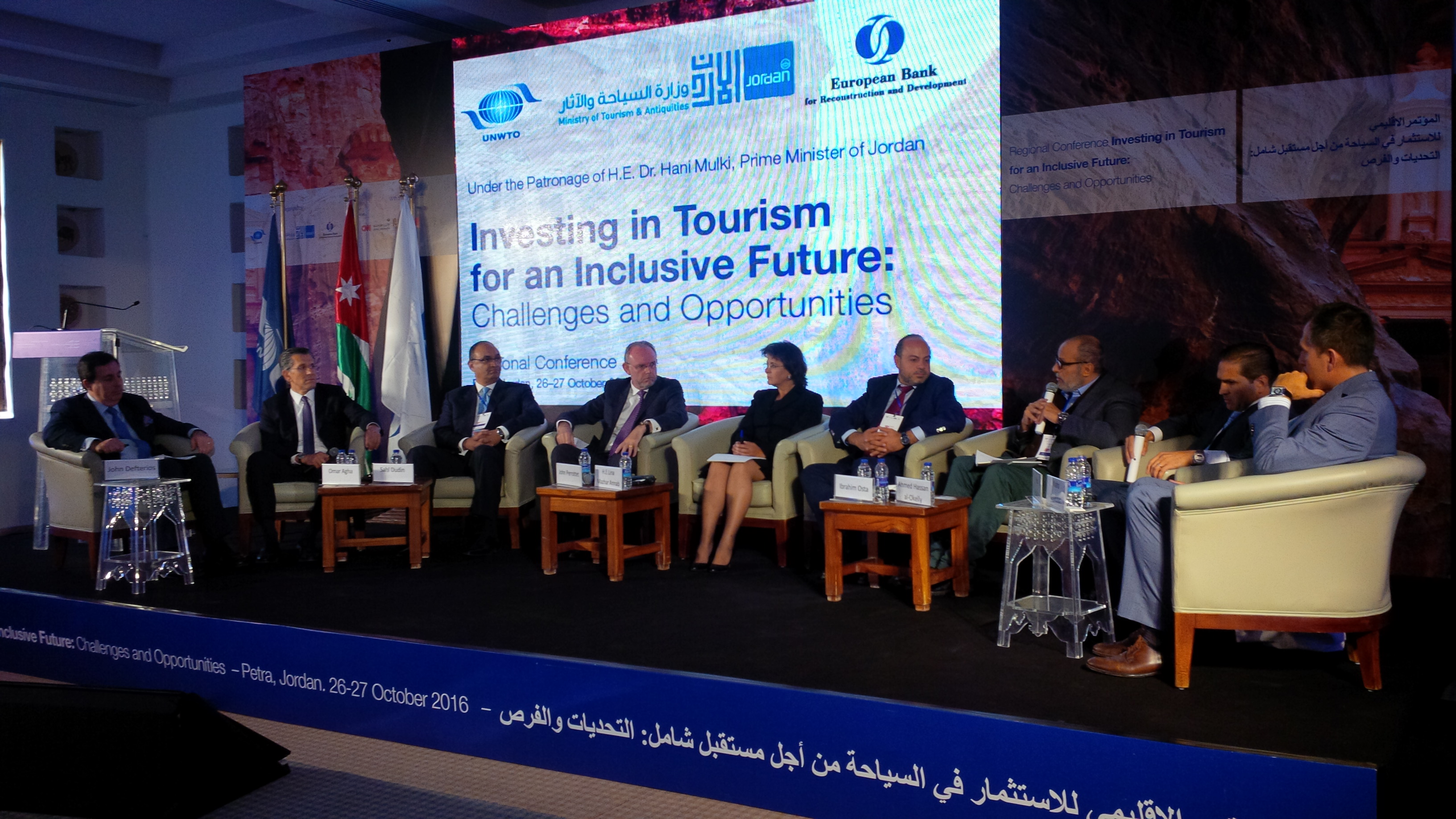
Tourism Middle East: The Final Petra Declaration is now out
On October 26 and 27 tourism leaders from the Middle east participated in the jointly organized by the European Bank for Reconstruction and Development (EBRD), the Ministry of Tourism and Antiquities of Jordan and the World Tourism Organization (UNWTO), brought together tourism stakeholders from the public, private, banking, investment and development sectors, who are working in the Southern and Eastern Mediterranean (SEMED) region and are driving tourism development on a national, regional or global level to identify the challenges and best-practices that are specific to the region, with a view to drafting comprehensive recommendations for tourism development in the future encompassing the following three priority areas:
- Provide access to training and employment opportunities;
- Enhance resource and energy efficiency
- Strengthen local Micro, Small and Medium Enterprises
eTN Publisher was one of the panelist contributing to this important event.
The Final declaration known as the Petra Declaration was now released by uNWTO it reads:
Declaration on Investing in Tourism for an Inclusive Future
PETRA DECLARATION
We, the representatives of the tourism administrations, international and regional organizations, investment and banking sector, and the private sector gathered at the Regional Conference on Investing in Tourism for an Inclusive Future: Challenges and Opportunities, organized by the European Bank for Reconstruction and Development (EBRD), the Ministry of Tourism and Antiquities of the Kingdom of Jordan, and the World Tourism Organization (UNWTO) in Petra, Jordan, on 26–27 October 2016, Recalling
1. The United Nations Educational, Scientific and Cultural Organization (UNESCO) Convention concerning the Protection of the World Cultural and Natural Heritage, adopted on 16 November 1972, which considers that “parts of the cultural or natural heritage are of outstanding interest and therefore need to be preserved as part of the world heritage of mankind as a whole”.
2. The UNWTO Global Code of Ethics for Tourism, approved by the UNWTO General Assembly in 1999 and endorsed by the United Nations (UN) General Assembly in 2001, which comprises a comprehensive set of principles as guideline for responsible and sustainable tourism, including the provision of fair and quality training and employment opportunities in tourism.
3. The UN General Assembly resolution A/RES/64/14 of 22 December 2009 that expresses the support for the establishment of the UN Alliance of Civilizations as a platform for intercultural dialogue, understanding and cooperation.
4. The UN General Assembly resolution A/RES/66/288 of 27 July 2012 that endorses the outcome document of the UN Conference on Sustainable Development, The Future We Want which emphasizes that “well-designed and managed tourism can make a significant contribution to the three dimensions of sustainable development, has close linkages to other sectors, and can create decent jobs and generate trade opportunities”;
5. The UN General Assembly resolution A/RES/69/233 of 19 December 2014 on the Promotion of sustainable tourism, including ecotourism, for poverty eradication and environment protection which recognizes that “sustainable tourism, including ecotourism, represents an important driver of sustainable economic growth and decent job creation, that it can have a positive impact on income generation and education, and thus on the fight against poverty and hunger, and that it can contribute directly to achieving the internationally agreed development goals”;
6. The UN General Assembly resolution A/RES/70/1 of 25 September 2015 on Transforming our world: the 2030 Agenda for Sustainable Development, which adopts the 17 Sustainable Development Goals (SDGs), of which three specifically mention tourism.
7. The UN General Assembly resolution A/RES/70/193of 22 December 2015, which proclaimed 2017 the International Year of Sustainable Tourism for Development and encourages the UN 2 system and all other actors to support sustainable tourism at all levels, including international cooperation, as an efficient instrument to contribute to sustainable development, especially addressing global challenges such as poverty eradication, environment protection, and economic empowerment of women and youth;
8. The T20 Tourism Ministers’ Declaration of 30 September 2015 on Tourism, SMEs and Employment – Policies to Stimulate Job Creation and Inclusiveness, which recognizes that “the competitiveness of tourism depends on the quality of the service and thus the sector requires increased investment in human resources development, including education and vocational training, as well as improvement in working conditions and social dialogue”;
9. The 10-Year Framework of Programmes on Sustainable Consumption and Production Patterns (10YFP), notably the 10YFP Sustainable Tourism Programme that encourages the shift towards green growth and sustainable development.
Considering that
10. Tourism is one of the fastest growing socio-economic sectors: in 2014 tourism was the third world export earning category — after fuels and chemicals — accounting currently for an estimated 10% of world GDP, 1 in 11 jobs, 7% of global trade and 30% of trade in services;
11. Given its complexity of multiple horizontal links with other economic sectors, tourism can generate development opportunities along the entire tourism value chain, diversifying the economy and stimulating entrepreneurship, thus accelerating structural transformation and providing opportunities to stimulate other productive sectors in goods and services related to tourism demand;
12. Tourism is featured in three of the 17 SDGs, namely Goal 8, 12 and 14 on inclusive and sustainable economic growth, sustainable consumption and production, and the sustainable use of oceans and marine resources, respectively, and yet has the potential to contribute to sustainable development in general in view of its cross-cutting nature;
13. Tourism is also well-positioned to fight poverty through creation of entrepreneurship opportunities as well as full and productive employment and decent work for all, particularly youth, women, indigenous, local and disadvantaged communities;
14. Resource efficiency in tourism operations and adoption of sustainable consumption and production patterns will enhance the sector’s competitiveness while contributing to address climate change imperatives in line with SDG 12 and SDG 13 respectively.
15. Tourism development, when efficiently planned and well managed, has the potential to contribute to environmental conservation efforts and poverty reduction by focusing on biodiversity assets;
16. As tourism is based on human interaction between visitors and host communities, it can efficiently contribute to the promotion of cultural links to improve and promote intercultural and international understanding, mutual respect and tolerance between nations and cultures, as well as between developed and developing countries and regions by enhancing cooperation at all levels and thus contribute to a culture of peace;
17. Despite growing recognition of tourism as an instrument for development, the sector often lacks firm integration in national development plans and is considerably underrepresented in international aid flows.
18. There is a growing demand from tourism organizations and stakeholders for a more systematic application of monitoring, data collection and detection of early warning signals to support evidence-based decision making processes and to underpin tourism’s catalytic capabilities in contributing to sustainable and resilient development.
Call upon
19. The private sector, investors, financial institutions, governments, academia and civil society to ensure that tourism development is based on responsible and sustainable planning, evidencebased decision making, and the involvement of all stakeholders, including the host communities and disadvantaged groups of society;
20. Governments, in partnership with the private sector, investors and financial institutions to provide access to fair and quality training and employment opportunities in order to address the inclusion gaps concerning youth and women, and to reduce local and regional employment and skills disparities;
21. Governments to incentivize entrepreneurship in relevant economic sectors related to the tourism value chain and to generate backward and forward linkages, as well as a regulatory framework, in order to fully engage local Micro, Small and Medium Enterprises (MSMEs) in the complex tourism value chain;
22. Governments, the private sector and all other relevant stakeholders, to promote innovation in tourism products, business models, and management, to embrace what is referred to as “sharing economy”, “collaborative economy” or “on-demand suppliers” and push forward the transformation and upgrading of the tourism sector in order to improve its quality and vitality;
23. Governments, in partnership with the private sector, to introduce improved national skills standards that reflect the requirements of private sector employers in the regions.
24. Governments, the private sector and all other relevant stakeholders to enhance local sourcing of agricultural, fisheries and forestry products to offer a genuine food experience to tourists, and to promote typical food products and handicrafts as assets of the destination.
25. Governments, the private sector and all other relevant stakeholders to promote diversification of local destinations, assets and types of tourism.
26. Governments to integrate and prioritize sustainable consumption and production in national planning and policy making, including tourism, to accelerate the shift towards more sustainable consumption and production patterns;
27. Governments to take a holistic approach and promote regional integration by developing cross-border tourism products and initiatives that can present beneficial opportunities for regions as a whole in the international market, while serving individual destinations’ economies, environments, and social factors;
28. Governments, the private sector and all other relevant stakeholders, to support sustainable tourism development and foster investment in infrastructure and technology that helps to improve resource efficiency and decouple economic growth from resource use and environmental degradation;
29. The private sector to act in line with the principles of the Global Code of Ethics for Tourism and advance Corporate Social Responsibility (CSR) initiatives;
30. Governments, the private sector and education institution to promote the UNWTO TedQual Certification Programme—Themis Foundation, which defines international quality criteria and standards to ensure the quality improvements in hospitality and tourism education programmes in compliance with the principles and practices of the UNWTO Global Code of Ethics for Tourism”
31. Governments, the private sector, investors and financial institutions to step up efforts in building an inclusive, sustainable and resilient tourism sector
32. Governments, the private sector and academia to establish data collection tools to capture and measure the social impact of MSMEs on local economies.
33. The global donor community, investors and financial institutions to recognise the potential of tourism to contribute to sustainable and inclusive growth and to increase investment for the sustainable development of tourism.
34. The UN System, and UNWTO in particular, to intensify efforts in advocating for tourism as a tool for development, and to trigger changes in policies, business practices and consumer behaviour on the occasion of the International Year of Sustainable Tourism for Development, 2017.
35. Governments to promote the message of peace and understanding as a prerequisite for sustainable development through tourism, fostering cross-cultural exchange and harmony between peoples and civilizations; and to support efforts to enhance safety and security and respect for human rights.
36. All tourism stakeholders to advance efforts in enabling and on-boarding hyperlocal technologies to enhance the travel experience.
37. All tourism stakeholders to recognize the role of tourism in contributing to greater understanding and respect among civilizations, cultures and religions, in accordance with the principles of the UN Alliance of Civilizations.
38. All tourism stakeholders to recognize the need for respecting, protecting and conserving cultural and natural heritage—as well as ensuring its transmission to future generations—in line with the UNESCO Convention concerning the Protection of the World Cultural and Natural Heritage and the Sustainable Development Goals.
Pledge to
39. Use and promote tourism as a tool for contributing to the achievement of the 2030 Agenda for Sustainable Development;
40. Contribute to building an inclusive and sustainable tourism sector that is based on human rights, social and economic justice and equality;
41. Enhance and actively engage in the dialogue between the private sector, governments and educational providers in improving national skills standards and training provision in the tourism sector;
42. Foster public-private partnerships and increase investment in tourism, particularly related to infrastructure, product and human resource development, financing, research and technology;
43. Create opportunities for high-quality on-the-job training to foster school-to-work transition for young people entering the tourism and hospitality sectors through partnerships with local vocational schools, colleges and training providers;
44. Strengthen vocational and technical level training as well as innovation and research in higher education;
45. Create and implement quality training and career opportunities for all, including youth, women, indigenous and local populations, and disadvantaged groups, that contribute to an inclusive and sustainable growth of local communities;
46. Ensure equal pay for equal work and deliver jobs that are aligned with the principles of the International Labour Organization’s Decent Work Agenda;
47. Enhance access to financing for MSMEs in tourism to enable their increased participation in local and global value chains;
48. Undertake all efforts in continuously improving the sustainability of the tourism sector and ensure its resource efficiency at all levels;
49. Strengthen efforts to generate sufficient funding and investment in tourism, including to support competitiveness of MSMEs; Extend our sincere gratitude to our host, the Government of Jordan, for its warm hospitality and amiable support for the organization of the Regional Conference on Investing in Tourism for an Inclusive Future, as well as its significant contribution to the advancement of the sustainable tourism agenda as a driver for change and an inclusive future.
Petra, 27 October 2016
Final Petra Declaration (in English)
Final Petra Declaration (in Arabic)
Conference’s booklet (including provisional programme, foreword and speakers’ bio notes in English)
Conference’s booklet (including provisional programme in Arabic)
http://https://youtu.be/1mErCrPC7Oc

